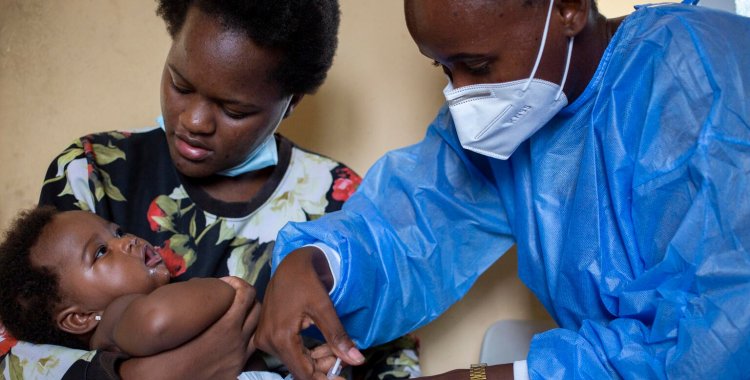"It is important to highlight here that the covid-19 pandemic had a negative impact on all health systems. Without exception. In developed countries, less developed countries and with that situation, fundamentally, there was a substantial drop in vaccination coverage", she explained.
The government official spoke to Lusa on the sidelines of her participation in the Euro-Africa Forum, an initiative by the Portuguese Diaspora Council association, which took place on Monday and Tuesday in Carcavelos, on the outskirts of Lisbon.
Sílvia Lutucuta was responding to the report released on Monday by the WHO and UNICEF that placed Angola among the ten countries that vaccinated the fewest children against diphtheria, tetanus and whooping cough in 2023.
Estimates from the two UN agencies concern national child vaccination coverage and also highlight that, regarding measles, Angola is also one of the countries that records the lowest coverage rate, with just 50 percent.
"Angola, within the scope of this situation, implemented a plan to recover vaccination coverage, which it has been working on since June last year, with the support of Gavi [World Vaccine Alliance], and we have been recovering vaccination coverage", stressed Sílvia Fight.
"It is also important to highlight that our country is already classified as a middle-income country and, being a middle-income country, it loses the support that most developing countries have, especially for acquiring vaccines," she added.
The minister highlighted the Government's efforts to overcome the constraints caused by the pandemic and for becoming a middle-income country.
"We also have to value the effort that the Government of Angola has made for around eight years in acquiring vaccines (...), they are purchased or acquired with ordinary resources from the Treasury [Angolan public money] and we have done everything to ensure that we do not want to have zero-dose children in our country and continue the vaccination process", she stated.
"We are sure that the next reports [from the UN] will be much better" in their portrayal of Angola, she anticipated.
Regarding the alert issued recently by the WHO regarding the registration of cases related to a new epidemic outbreak of monkeypox (Mpox, in its acronym in English) in the neighboring Democratic Republic of Congo, Sílvia Lututuca referred to the contingency plan that the national authorities maintain in course.
"Since the WHO issued an international alert about the appearance of monkeypox in several countries, not only in Africa, but there have also been cases in Europe and now in the African region, in our SADC region [Southern African Development Community], we quickly implemented our contingency plan, with very assertive measures for epidemiological and laboratory surveillance, and education of our population", she said.
The minister also highlighted training activities for those responsible for controlling borders and for the population so that, in the case of symptoms similar to monkeypox, they can go to health centers.
On July 5th, the Ministry of Health reiterated that the country did not register any case of Mpox, after tests were carried out on a suspected case, continuing to monitor the disease situation in neighboring countries.
Monkeypox is a virus transmitted to humans from monkeys and rodents that manifests itself through fever, headache, fatigue, muscle pain, generalized rashes (skin lesions), having an incubation period of five to 21 days.







